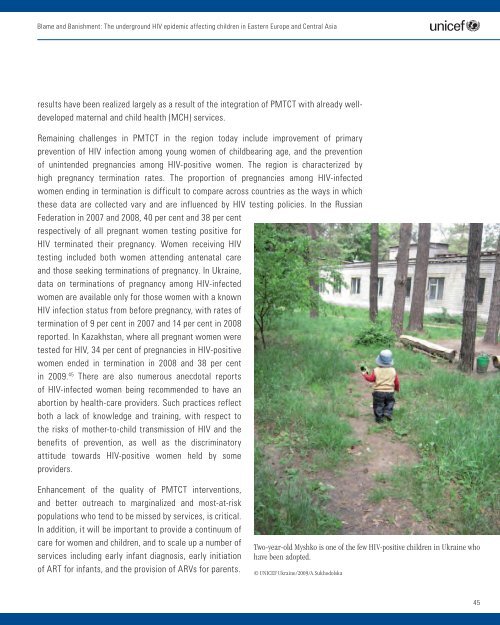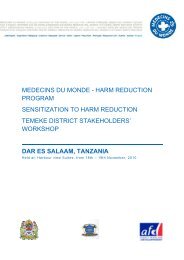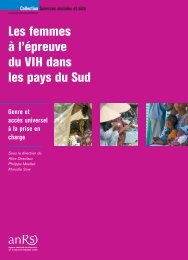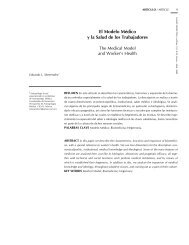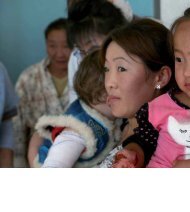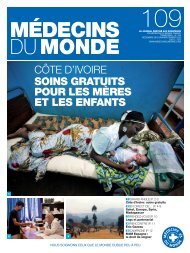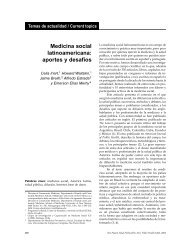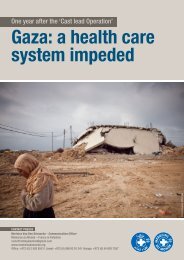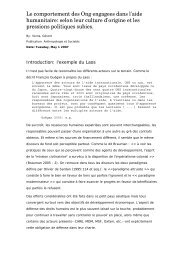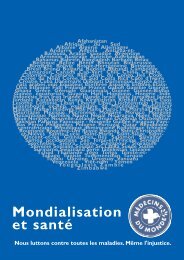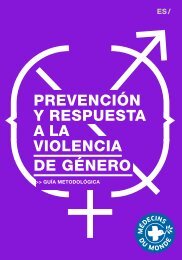Blame & Banishment - Médecins du Monde
Blame & Banishment - Médecins du Monde
Blame & Banishment - Médecins du Monde
You also want an ePaper? Increase the reach of your titles
YUMPU automatically turns print PDFs into web optimized ePapers that Google loves.
<strong>Blame</strong> and <strong>Banishment</strong>: The underground HIV epidemic affecting children in Eastern Europe and Central Asia<br />
results have been realized largely as a result of the integration of PMTCT with already welldeveloped<br />
maternal and child health (MCH) services.<br />
Remaining challenges in PMTCT in the region today include improvement of primary<br />
prevention of HIV infection among young women of childbearing age, and the prevention<br />
of unintended pregnancies among HIV-positive women. The region is characterized by<br />
high pregnancy termination rates. The proportion of pregnancies among HIV-infected<br />
women ending in termination is difficult to compare across countries as the ways in which<br />
these data are collected vary and are influenced by HIV testing policies. In the Russian<br />
Federation in 2007 and 2008, 40 per cent and 38 per cent<br />
respectively of all pregnant women testing positive for<br />
HIV terminated their pregnancy. Women receiving HIV<br />
testing included both women attending antenatal care<br />
and those seeking terminations of pregnancy. In Ukraine,<br />
data on terminations of pregnancy among HIV-infected<br />
women are available only for those women with a known<br />
HIV infection status from before pregnancy, with rates of<br />
termination of 9 per cent in 2007 and 14 per cent in 2008<br />
reported. In Kazakhstan, where all pregnant women were<br />
tested for HIV, 34 per cent of pregnancies in HIV-positive<br />
women ended in termination in 2008 and 38 per cent<br />
in 2009. 45 There are also numerous anecdotal reports<br />
of HIV-infected women being recommended to have an<br />
abortion by health-care providers. Such practices reflect<br />
both a lack of knowledge and training, with respect to<br />
the risks of mother-to-child transmission of HIV and the<br />
benefits of prevention, as well as the discriminatory<br />
attitude towards HIV-positive women held by some<br />
providers.<br />
Enhancement of the quality of PMTCT interventions,<br />
and better outreach to marginalized and most-at-risk<br />
populations who tend to be missed by services, is critical.<br />
In addition, it will be important to provide a continuum of<br />
care for women and children, and to scale up a number of<br />
services including early infant diagnosis, early initiation<br />
of ART for infants, and the provision of ARVs for parents.<br />
Two-year-old Myshko is one of the few HIV-positive children in Ukraine who<br />
have been adopted.<br />
© UNICEF Ukraine/2009/A.Sukhodolska<br />
45


